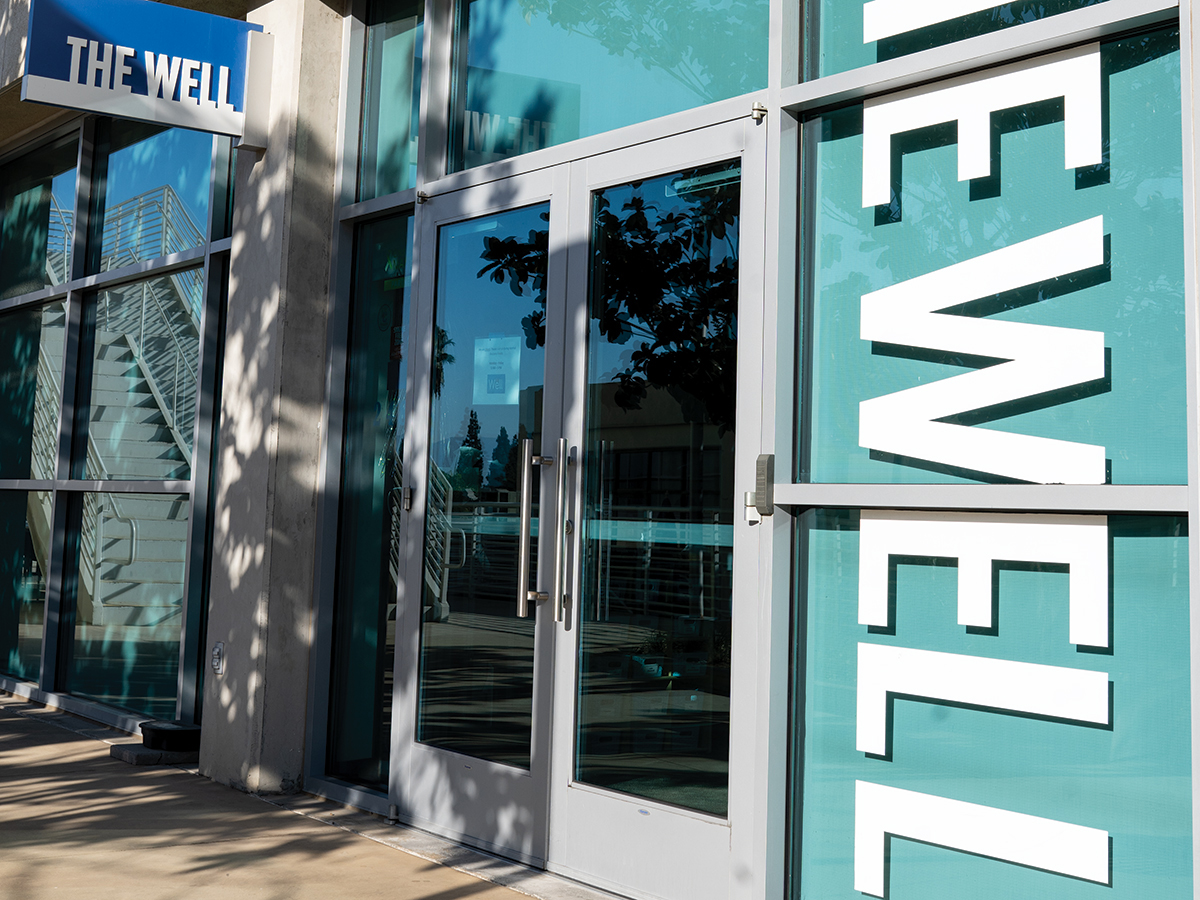Mental health concerns have increased for college students across the nation due to the COVID-19 pandemic as they have adapted to life behind a screen. At UCR, students are lending their time to promote mental health amongst their peers while also maintaining their own.

UCR’s Active Minds is run under The Well, and it is one of 400 student-led campus chapters nationwide dedicated to providing resources and mental health advocacy for students. Josie Ma, third-year business marketing major and director of marketing for Active Minds, became involved with the organization this fall while researching UCR’s mental health resources. In an interview with The Highlander, Ma stated that the resources provided by Active Minds, The Well and Counseling and Psychological Services (CAPS) have helped her feel less alone during the pandemic.
“Of course it was difficult. I miss walking on campus going to lecture … [it] felt like you were in an environment to learn,” stated Ma.
This year has brought along more stressors for college students than in years past. With less opportunities to interact with friends on campus and more time being spent indoors, the effects have been taxing. A new study conducted by researchers from seven U.S. universities assessed the psychological impact felt by college students during the pandemic and found that the most common issues among students were lack of motivation, anxiety, stress, isolation and worry.
‘We’re seeing the numbers get higher and higher,” stated Director of The Well Devon Sakamoto. Since the pandemic began, The Well has seen an increase in students seeking to discuss their mental health concerns with peer coaches and professional health educators. Sakamoto made it clear that services provided by The Well do not equate to clinical therapy rather serve as an outlet for students. Some of the most common issues that UCR students have been dealing with include a lack of motivation and difficulty maintaining boundaries, finding a good work-life balance and fatigue, explained Sakamoto.
Stephanie Chuquipul, fourth-year administrative studies and economics major, has been feeling no different. “One of the hardest things I think, academically, is to try to stay focused during class. It’s so hard, I get distracted,” stated Chuquipul. As the student director of outreach and interrelations at Active Minds, she has heavily promoted the resources by Active Minds and The Well to her peers such as the Short Term Grocery Support program offered by Basic Need, peer coaching, the R’Pantry and the COVID-19 support group hosted by CAPS.
This academic year, Active Minds focused their efforts on providing students relief surrounding the COVID-19 pandemic. Their focus on the number of students who faced economic hardships and food insecurity became a top priority for the group. Aside from that, they also focused on inclusion and making sure students’ voices were being prioritized during conversations about Black Lives Matter.
Since being remote, The Well has had to improvise new methods of conducting outreach, since most of their student interaction on campus came from events and outdoor tabling. While it has been difficult to reach students online, they have had great success with their peer mentorship program, mental health education workshops for student organization and their COVID-19 wellness kits to provide students with items such as face coverings, hand sanitizer, condoms, period products, stress balls, sleep kits and more.
While Active Minds has been prioritizing the mental health and well-being of students across campus, its members have also found ways to prioritize their own. Ma stated that she has used study apps to help her with time management and practices self-care by spending time with her family, one of the pandemic’s blessings in disguise. She also encourages students to practice reciting positive affirmations. Chuquipul has established boundaries for her life, school and work as well. “Self Care is so important, especially during this pandemic,” she stated.
For students who may feel intimidated to reach out for help, Sakamoto said a good place to start would be reaching out to any of UCR’s ethnic and gender centers to connect with like-minded people with similar backgrounds. “It doesn’t have to be just like talking about your mental health, it can just be something that’s really comforting to yourself … being around people who are like-minded,or share your same cultural values are all good for your mental well-being,” she stated. “We’re all still here to support students.”
For more information on Active Minds and resources provided by The Well, please visit https://well.ucr.edu.







